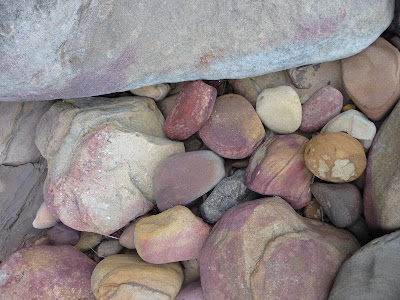Today is the Feast of the Body and Blood of Christ, formerly known as Corpus Christi Sunday. Below is more or less the homily I preach for the community here at Canisius College.
To begin with, I invite you to have in mind the string of a musical instrument, especially the way that it requires being held in tension in order to produce a rich, resonant, and beautiful sound. Without this tension, the tune is lost and the string produces no music. This past week in our tertian studies, we reflected on how the life of a Christian is to live in creative tensions, for instance:
between contemplation & action
between being People of the world/citizens of nations & People of the Gospel
between Body & Spirit
between being simultaneously Sinners & Beloved by God
Why do I mention this? Because our Celebration of the Body and Blood of Christ calls for us to hold such tensions if we are to deepen our appreciation for the gift God gives to us in the Eucharist, in which God communicates his very self to us.
One side of the tension is that which is described in the reading from Exodus, where God establishes a covenant with Moses, the covenant of the law. The law is a gift to the Israelites intended to save them from the chaos of sin, and to establish them as a special people. The law was intended, not as a burden, but as a blessing.
The Eucharist does not negate this first covenant… it includes it. In the Eucharistic prayer, wherever we hear the mention of sacrifice, and the offering of Jesus’ life as a means of saving us from sin, this first covenant is referenced… the covenant that Moses celebrated by showering the people with the blood of the sacrificial offerings… the blood a symbol of life.
But there is also a second covenant that includes and transcends the first… because even though the law was a blessing and marked the Israelites as a people special to God, God was not content living at a distance from people’s hearts, from the human experience. In this second covenany we discover that God desires not sacrifice, but justice and right relationship with our brothers and sisters; God does not desire us to live in fear of him so much as God desires us to live with a passionate and felt sense of God’s affection for us.
The second covenant, the one that Jesus establishes as the new Moses, is intended to liberate us from the fear of God, and to draw us into an intimate and loving relationship… God is Abba, Father… or even better, Dad… and we are the beloved children who share the inheritance that Jesus promises, the Kingdom.
So, the Eucharist includes within it two covenants… one about the law, and the other, a relationship of love.
That’s one of the creative tensions.
Can you handle another?
The second tension involves a little imagination on our part… I want to invite you to remember for a few moments a memorable meal… and as Ignatius recommends in his instructions on prayer… to use our interior senses to really savor the whole experience… Recall a memorable meal.
Was any body alone, raise your hand? I didn't think so. (Believe it or not, but evolutionary biologists have discovered that we're predisposed to enjoy a meal more in the company of others.)
The reason we recall these memorable meals was about more than the most sumptuous feast. While we might have paid plenty of attention to the delectable food, we probably spent our time in conversation… For my part, I remembered a meal when I was in Mildura on my last assignment giving the Retreat in Daily Life. It will undoubtedly be one of the most memorable experiences I have here in Australia. I was visiting with the families of two Italian women, sisters who made the retreat. We spent hours cooking together… an amazing meal! And then as you might imagine, there was laughter, and there were tears, and the sense of fullness was not only that of our bellies, but also out hearts…
In such a meal, there is an amazing chemistry that happens where nothing is missing, and the least thing taken away makes a difference… a single person missing would change everything. It is a chemistry that makes the ordinary into the extraordinary, that makes the mundane into the memorable.
So the other tension is this… Like the memorable meal, the Eucharist is not just the food that only God can provide, the Living Bread and the Saving Cup… is also an action and a matter of relationships.
The Real Presence, the Sacrament of our Incarnate God calls our attention likewise to the sacredness of the person sitting beside us, or the person huddled under a bridge for shelter, or the person sitting alone with no one to visit them, or to the Aboriginal child sitting in despair in a rural camp.
It is a mysterious and transforming chemistry of relationships… the Holy Trinity and each of us, the world of spirit and the world of matter, all made holy.
This bread that only God can give… Jesus Christ, who is taken, blessed, broken, and given for us and the life of the world—transforms us when we receive it and live in relationship with him and the world made new.
St. Augustine once wrote:
"I thought I heard your voice from on high: 'I am the food of grown men and women; grow then, and you will feed on me. Nor will you, as with bodily food, change me into yourself, but you will be changed into me.'"
























































